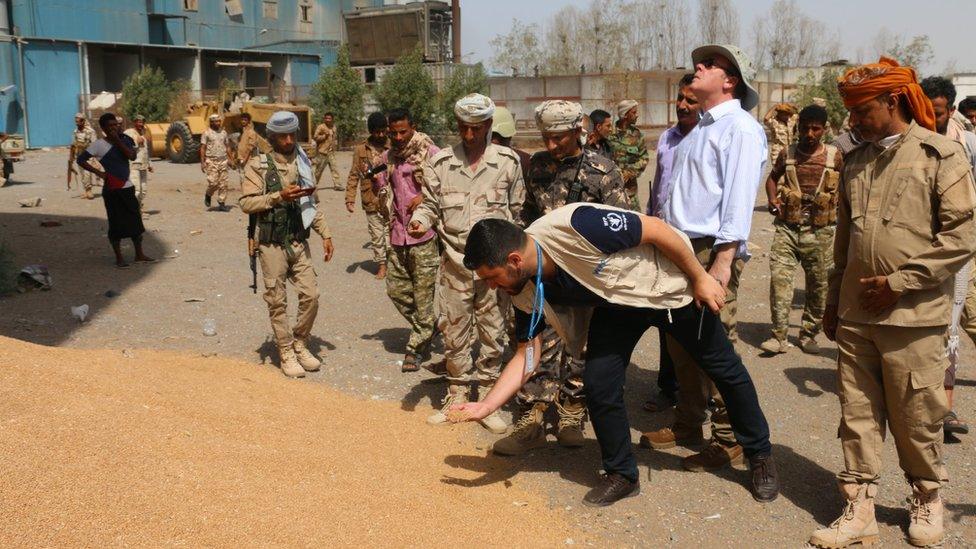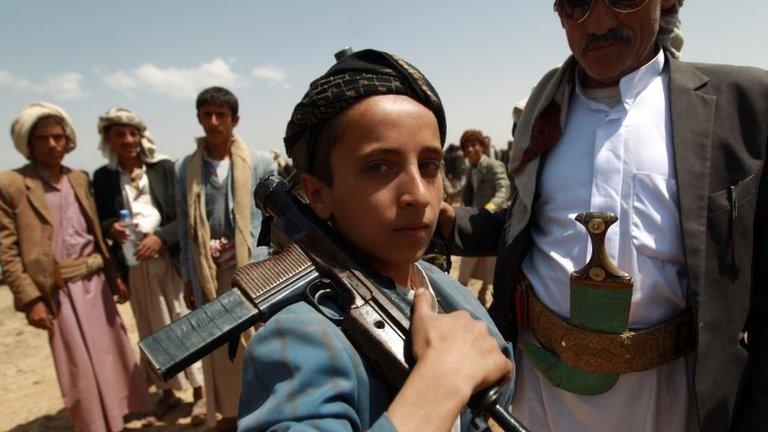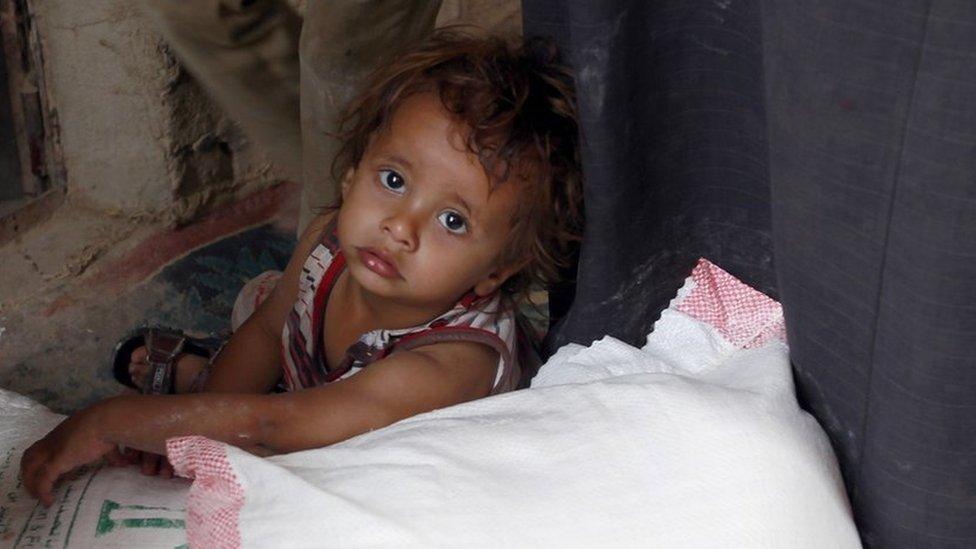Yemen crisis: UN gains access to vital Hudaydah grain store
- Published

An evaluation mission from the World Food Programme reached the Red Sea Mills
UN aid officials have for the first time in six months reached a vast store of desperately-needed food on the frontline in Yemen's Hudaydah port.
The Red Sea Mills facility holds enough grain to feed 3.7 million people for a month, but the UN had warned the grain was at risk of rotting.
The Yemeni government and the rebel Houthi movement agreed a ceasefire around Hudaydah in December.
But they have yet to implement a UN-brokered plan to pull out of the port.
UN Secretary General António Guterres announced that a World Food Programme evaluation mission had been able to reach the Red Sea Mills at the start of an aid pledging conference in Geneva on Tuesday.
Member states have so far promised $2.6bn (£2bn) - a 30% increase on the amount pledged at a similar conference last year, but $1.6bn short of the total the UN hopes to raise.
Saudi Arabia and the United Arab Emirates are the biggest potential donors this year, having pledged $500m each.
The hidden victims of the Yemen war
The two countries are leading a coalition of mostly Sunni Arab states that intervened in the conflict in Yemen in March 2015 and imposed a partial blockade after President Abdrabbuh Mansour Hadi was forced to flee abroad by the Houthis - a group they consider to be a proxy of regional Shia power Iran.
Tens of thousands of people have been killed or injured since then, many of them civilians. Many more have died from preventable diseases, exacerbated by malnutrition.
The UN estimates that 24 million people - 80% of Yemen's population - are in need of assistance. Up to 10 million of them are believed to be on the verge of famine.

A sign of hope
By Lyse Doucet, BBC chief international correspondent
Finally getting access to the Red Sea Mills is a breakthrough. When we visited this vital granary in January we saw how Yemen's desperately needed grain was at risk of rotting.
But the UN needs sustained access. That requires progress on promises made in December's Stockholm Agreement. Sources say they are now more hopeful the Houthis' long-delayed pull out from the main port of Hudaydah and two smaller ports will soon commence.
Where the fighting in Yemen has stopped... but not the suffering
That should lead to the phased redeployment of Yemeni government forces backed by the Saudi-led coalition. Both sides have been dragging their feet, raising fears this rare deal will collapse.
There is no trust, and much tension. And, away from this strategic corner of Yemen, fighting intensifies in some areas, and the risk of famine still looms.
There seems to be - at last - a greater recognition on all sides that there is no military solution to this conflict. But moving toward peace is still fraught with risk.

The charity Médecins Sans Frontières said it was ironic, external that many of the governments announcing donations at the Geneva conference were involved in the war in Yemen
"Donor governments pledging funds must work to resolve the obstacles that are preventing aid from reaching the people who need it, and to ensure that the aid delivered responds to their actual needs," it said in a statement.
"Ultimately, Yemen's humanitarian crisis can only be resolved when donor governments end their involvement in the war and hold the warring parties accountable for their atrocious conduct endangering the lives of millions."
The Norwegian Refugee Council meanwhile said the pledges of donations fell short of what was required, external to help all those in need.
"While billions are spent on bombs and weapons bringing death and destruction, much less is made available to save lives of Yemeni civilians," said Mohamed Abdi, its Yemen country director.
- Published14 April 2023

- Published12 December 2018
